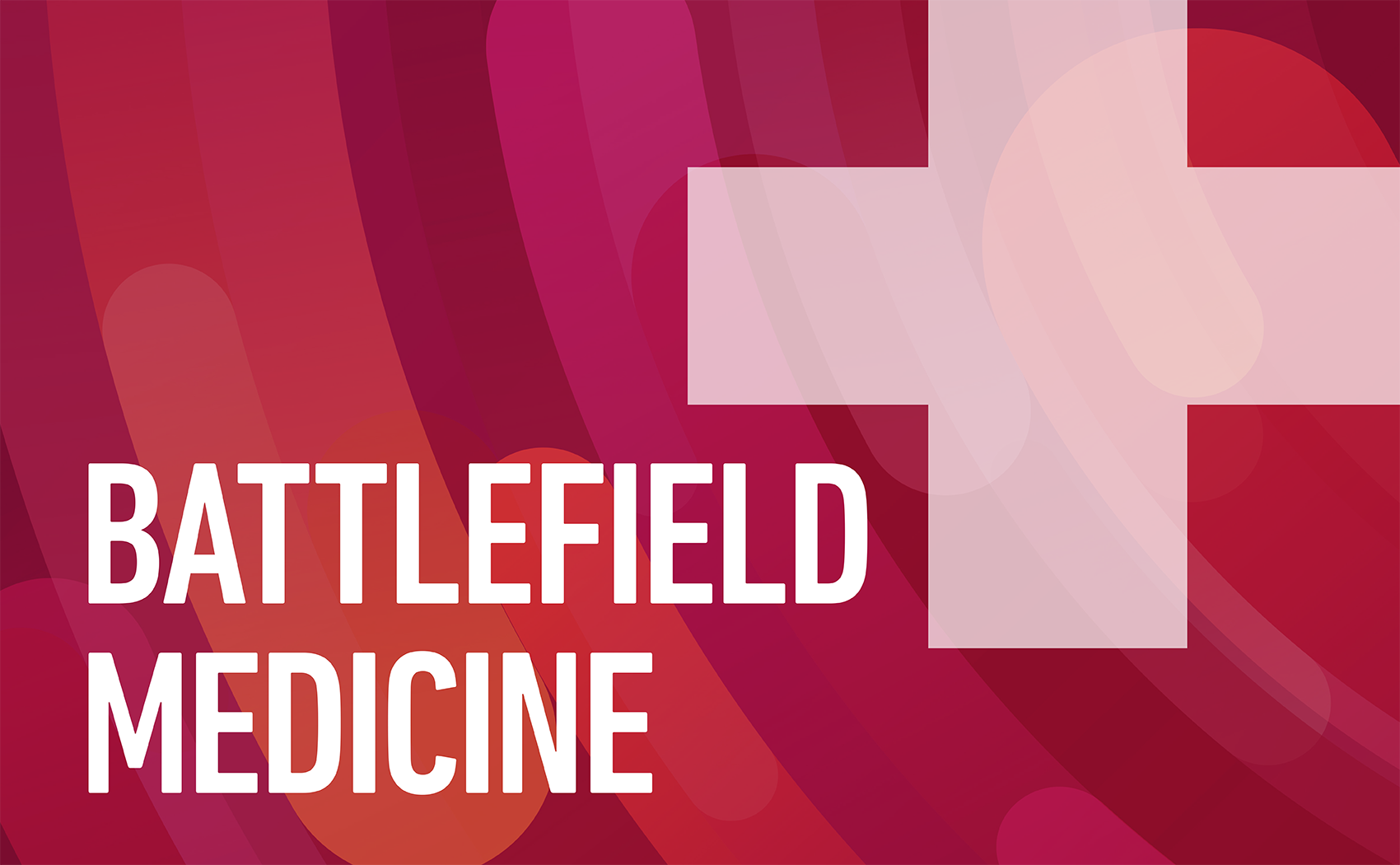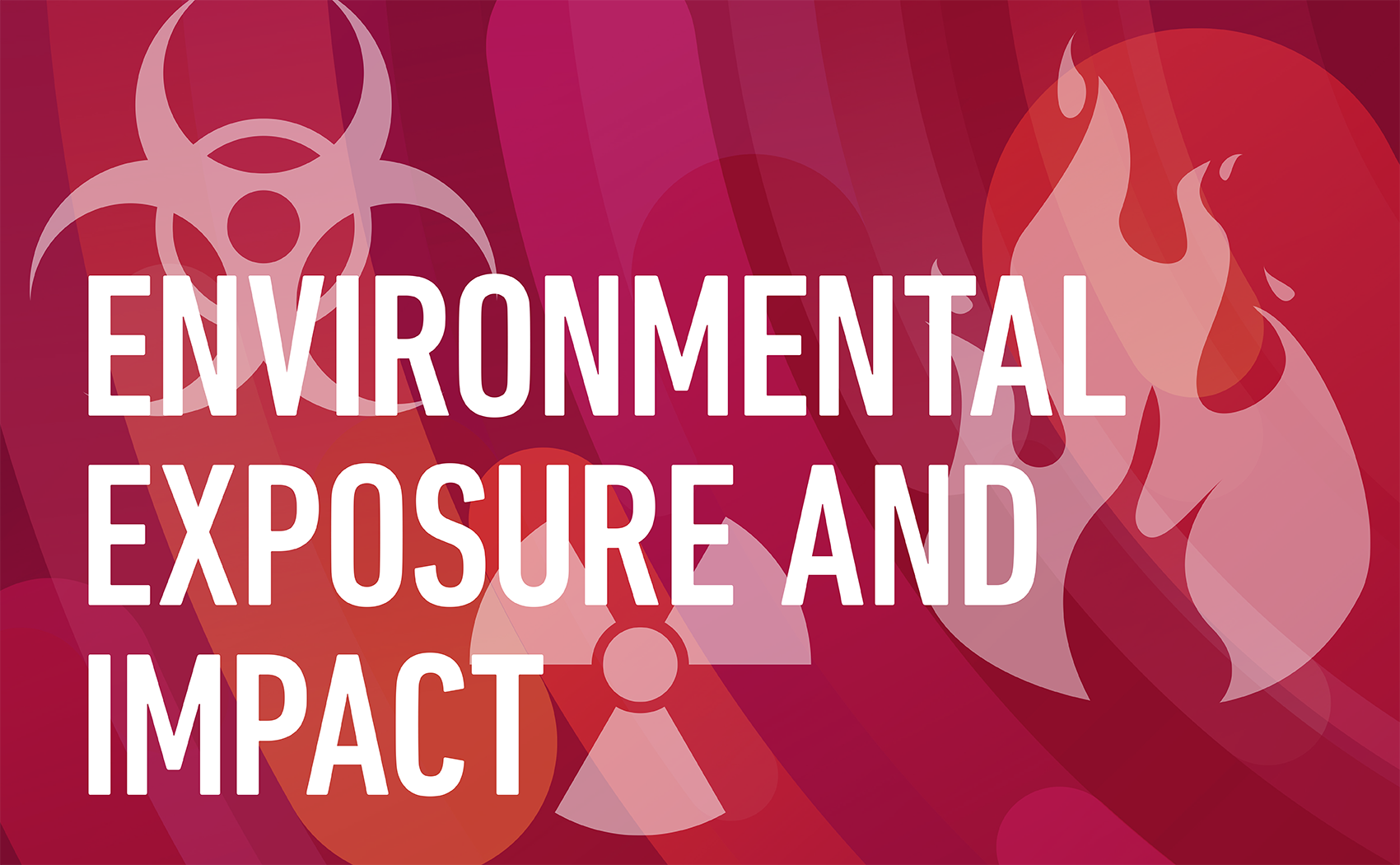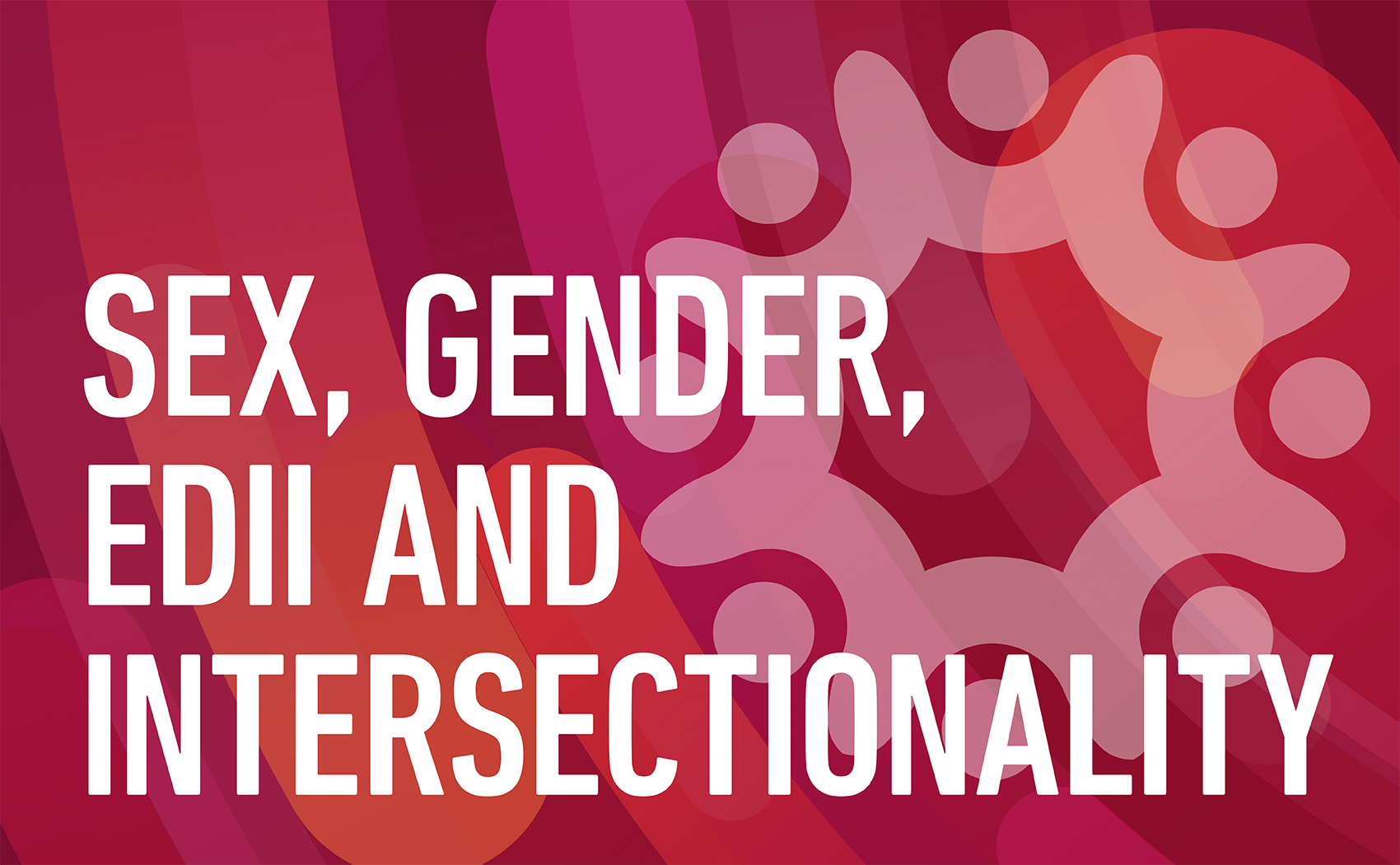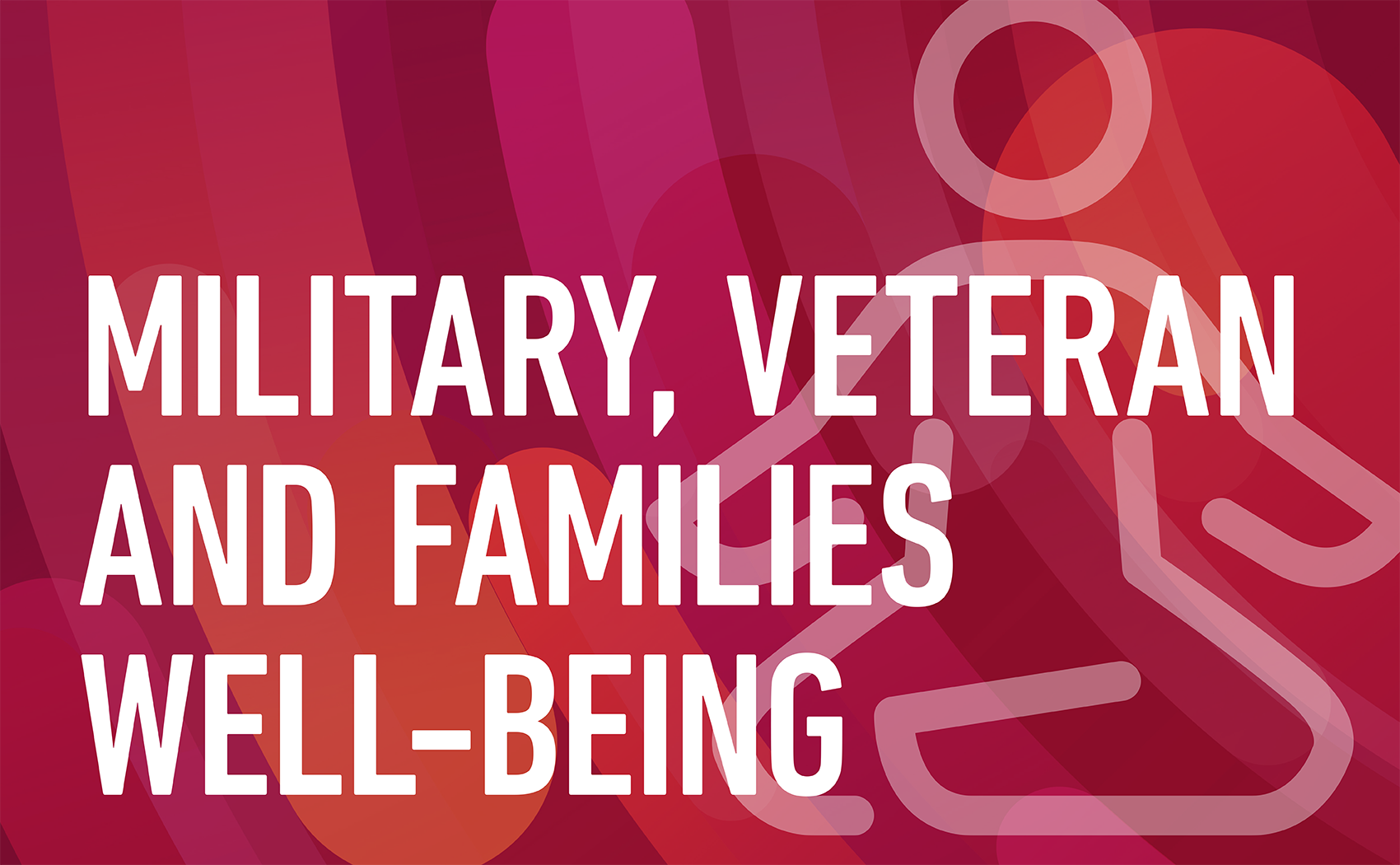Research
CIMVHR brings together researchers from a variety of backgrounds and areas to work on a wide range of projects and programs related to military personnel, Veterans, and their families. The work is impactful and meaningful, and through these contributions CIMVHR further advances the field.
CIMVHR has the privilege of being the hub for a vast number of research projects. We collect research needs from centres such as True Patriot Love and Public Services and Procurement Canada, and through a strict procedure we send out research requests across Canada for the projects these centres wish to have accomplished. Once adjudicated, using peer review, the selected individuals or teams perform the research and CIMVHR oversees the process. We are thrilled to highlight outstanding projects completed this year:
Environmental Exposure and Impact
Research Highlight 1
Challenges faced by military, public safety and security personnel supporting disaster relief operations.
Principal Investigator

J. Don Richardson MD, FRCPC
Western University, London, Ontario
Funding Sponsor
Defence Research and Development CanadaLay Summary
Natural disasters, including floods, earthquakes, and hurricanes, result in some of the most devastating consequences at the individual and community levels. To date, most of the natural disaster research focuses heavily on victims, with little attention paid to the personnel responding to such disasters. The purpose of this this study was twofold. The first was to review the challenges faced by military and public safety and security personnel supporting disaster relief operations. The second was to develop a detailed evidence-based report outlining the challenges faced and positive outcomes experienced by military, public safety and security personnel following deployment to natural disasters.
After performing a comprehensive review of almost 400 research studies related to this topic, we found that the challenges reported by relief workers generally followed a trend. The most frequently occurring challenges were related to institutional or infrastructure interactions, followed by resource limitations, general well-being, physical and mental health challenges, and social challenges. In addition to this general trend, we discovered trends within specific relief group populations. In the research we reviewed, military and first responders deployed in natural disaster relief situations reported higher instances of physical health challenges. We also found that social challenges, such as being lonely, interpersonal conflicts, and working with others, were largely reported by relief workers deployed to provide medical assistance. In contrast, workers on search and rescue deployment missions reported more challenges related to mental health and suicidality due to more exposure to traumatic events, such as death. Further, mental health challenges were consistently noted in different situations, types of relief worker, and deployments, with the highest proportion of relief workers reporting post-traumatic stress disorder symptoms. Finally, over half of the research studies we reviewed acknowledged positive or transformative outcomes following engagement in relief work. This includes the provision of additional resources, support, and training as well as self-growth and fulfillment.
Despite the frequency of research associated with the structural and resource challenges of natural disasters, few reviews to date stress the importance of personnel responding to such disasters. Findings from our research emphasize the importance of both pre-deployment training, to better prepare relief workers to manage expected challenges, as well as post-deployment supportive services to reduce negative outcomes and support relief workers’ well-being. This is important when making recommendations for future disaster relief preparations, training, and post-deployment interventions as well as research priorities to advance this area of research and applications.
Battlefield Medicine
Research Highlight 1
Thermoregulatory implications of varying soft armour torso coverage during prolonged physical activity in hot environments.
Principal Investigator

Daniel Gagnon, PhD
Montreal Heart Institute, University of Montreal, Quebec
Funding Sponsor
Defence Research and Development CanadaLay Summary
Soldiers often exercise in hot environments while wearing protective body armour. Body armour contributes to the heavy loads that soldiers carry, which can limit their performance during operational tasks. Soldiers report this fact as frustrating. The negative effects of wearing heavy armour are particularly evident when soldiers perform tasks in hot environments. This is caused by limited heat exchange between the body and the environment. The combination of physical tasks and heavy body armour that does not allow sufficient heat exchange, puts soldiers at a high risk of heat-related injuries (e.g., heat stroke). The use of modular armour, that enables soldiers to adapt their protection level, may not only reduce these problems, but optimize soldiers’ protection and survival. However, the impact of modular armour on soldiers’ physiological and perceptual responses, during an operational task in a hot environment, is unknown.
The aim of this study is to determine the thermoregulatory, cardiovascular, and perceptual effects of varying soft armour torso coverage during a slow march in a hot environment. Findings from this research will help inform policies and practice for military personnel working in conditions of extreme heat.
Research Highlight 2
Understanding concussion from injury to return to action.
Principal Investigator

Michael Hutchison, PhD
University of Toronto, Toronto, Ontario
Funding Sponsor
Defence Research and Development CanadaLay Summary
Concussion, or mild traumatic brain injury (mTBI), is a common occurrence for soldiers on the battlefield and for athletes in the sporting arena. Although some medical tests (e.g., cognitive tests, blood biomarkers, and brain imaging) have helped to explain some of the biological mechanisms associated with concussion, the overall physiological pathways are poorly understood. Further, there is a research gap related to the comprehensive analysis of concussed athletes or soldiers, overtime, with multiple evidenced-based measures.
Given the similarities between athletes and soldiers (e.g., youth, athleticism, physical and mental requirements for success, vulnerability to mTBI’s and an overlap in medical symptoms and nerve damage observed in the brains of young-adult athletes and military Veterans with histories of brain injury), athletes represent an ideal soldier proxy for investigating concussive injuries. Therefore, the purpose of this study is to determine the natural course of recovery from concussive brain injuries in athletes. This was done through neuropsychological testing, balance assessment, neuroimaging, cerebral blood flow, brain function, white matter structure, and blood biomarkers. Over 1,200 athletes participated.
This research has successfully generated the most comprehensive description of early injury brain physiology to date. In addition to the brain images measured, a comprehensive evaluation of inflammation, peripheral secondary injury processes, and eye muscle movements related to concussion injury and recovery were examined. This leads to a better understanding of mTBI in humans, which may lead to new concussion treatment approaches for athletes and soldiers. Building on this research’s findings and other new data collection approaches we identified, future research recommendations should consider additional physiological pathway associated with concussion such as brain regulation, nerve hormones, and immune function.
Mental Health
Research Highlight 1
Leveraging technology to improve mental health outcomes using machine learning analysis of a post-traumatic stress recovery clinical database.
Principal Investigator

Margaret McKinnon, PhD
McMaster University, Hamilton, Ontario
Funding Sponsor
CIMVHR-True Patriot Love Research InitiativeLay Summary
Almost 15% of Canadian Armed Forces (CAF) members and Veterans will be diagnosed with a deployment-related mental disorder, including post-traumatic stress disorder (PTSD) and depression. To prevent such illnesses, improve health outcomes, and reduce suicidality among CAF members and Veterans, a personalized medicine machine learning tool may prove beneficial. This research used clinical results and assessment data from machine learning computational methods and technology among CAF members and Veterans, with PTSD and treatment response (e.g., recovery; suicidal behaviour).
Research Highlight 2
Evaluating mental disorders using diagnostic imaging scans to assess brain inflammation in military post-traumatic stress disorder from exposure to low-level military blasts.
Principal Investigator

Isabelle Boileau, PhD
Center for Mental Health and Addictions (CAMH), Toronto, Ontario
Funding Sponsor
Defence Research and Development CanadaLay Summary
Post-traumatic stress disorder (PTSD) and brain injury resulting from exposure to low-level military blast (LLMB) are recognized as “signature” operational stress injuries among Canadian Armed Forces (CAF) members and Veterans. These injuries affect work performance, well-being and daily function. Progressive brain degeneration and immune responses may be linked to the long-term manifestation of debilitating cognitive and mental health symptoms associated with operational stress injuries.
This study used brain imaging methods with participants with PTSD, healthy controls, and CAF members with LLMB. The purpose was to assess if markers neurodegeneration could be detected in participants with PTSD or LLMB.
This study found no evidence of brain degeneration or immune response in CAF members with PTSD or LLMB. Instead, the data showed that only some groups of individuals with PTSD may be at risk for abnormalities in brain immune response, specifically, individuals with co-occurring depression and men who use cannabis. Additionally, CAF members with more extensive exposure to blast had higher indicators of brain degeneration. Preliminary results have informed us of the risk factors for brain degeneration and abnormal immune responses in CAF members.
Military, Veteran and Families Well-Being
Research Highlight 1
Creative arts initiatives for Veterans.
Principal Investigator

Eric Li, PhD
University of British Columbia, Kelowna, British Columbia
Funding Sponsor
CIMVHR-True Patriot Love Research InitiativeLay Summary
Every year, thousands of Canadian Armed Forces (CAF) members are released from service and re-join the civilian world. However, a good portion of these Veterans suffer from injury or illness during their military training or service. Creative arts therapies have proven beneficial in the assistance of physical and mental health rehabilitation. In this research review scan, our team explored existing creative arts therapies for Veterans in Canada. We also interviewed our partners to understand how to create art therapies in a meaningful way, to support CAF members’ and Veterans’ health and well-being. The goal of this our research is to develop recommendations that will support CAF members and Veterans’ physical and mental rehabilitation. We also seek to co-create a support network to connect CAF members and Veterans within the wider creative arts community for personal well-being.
Sex, Gender, EDII and Intersectionality
Research Highlight 1
Advancing research on servicewomen and women Veterans of the Canadian Armed Forces.
Principal Investigator

Maya Eichler, PhD
Mount Saint Vincent University, Halifax, Nova Scotia
Funding Sponsor
CIMVHR-True Patriot Love Research InitiativeLay Summary
Historically, there is a lack of research on women in the defence sector. This is due to a biased assumption of male military and Veteran stereotypes. This research seeks update and expand existing reviews of research related to Canadian servicewomen and women Veterans. From this work, we will identify and prioritize key research gaps. This will guide the future development of research on servicewomen and women Veterans in the Canadian context. In consultation with key knowledge holders such as women Veterans and their organizations, the Department of National Defence/Canadian Armed Forces, Veterans Affairs Canada, the Royal Canadian Mounted Police, and other researchers in the field. This project will help advance Canadian research on the needs, health, and well-being of military and Veteran women.
Research Funders

The War Amps
The War Amps is a national charity founded in 1918 after the First World War and has for many years been a leading voice in the veterans’ community in seeking improvements to disability pensions, health-care benefits and wellness policies for Canada’s war amputee veterans and seriously disabled veterans. Today, The War Amps assists all Canadian amputees by providing financial assistance towards the cost of artificial limbs, peer support and information on living with amputation, while advocating for the rights and interests of amputees.
In 2022, The War Amps provided $500,000 in grants to CIMVHR to fund ground-breaking research projects focused on greatly improving the quality of life for seriously disabled veterans. This funding, which was made possible thanks to the support of War Amps donors, will be used for research on topics such as cutting-edge advances in prosthetic limb technology, as well as how innovations in surgical procedures like osseointegration have the potential to transform the mobility of military leg amputees, among several other important projects.
In partnership with CIMVHR, The War Amps aims to address the lack of research funding into the health-related issues these veterans face, with the goal of ensuring they can receive access to the highest level of care and expertise available.
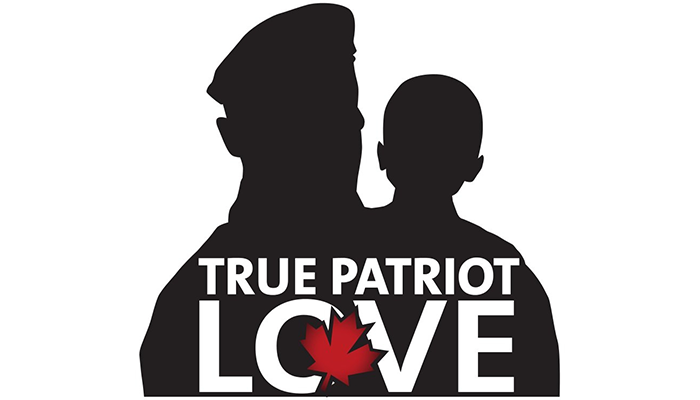
True Patriot Love Foundation
True Patriot Love Foundation is a national charity dedicated to providing essential support and resources to Canadian military members, Veterans and their families. The Foundation believes in the importance of research in establishing evidence-based programs, while increasing access to programs and treatments dedicated to advancing the health and well-being of military personnel, Veterans and their families.
Through a 10-year partnership with CIMVHR, True Patriot Love Foundation is supporting cutting-edge research projects and program evaluations across Canada. Together, they are working to strengthen knowledge transfer between CIMVHR’s established network of academia, government supporters and other stakeholders to ensure that evidence-based research can be rapidly translated into practice, policies and programs.
This year, four projects were completed, and another new project was funded through the True Patriot Love Foundation, focusing on priority research areas such as military family health, military to civilian transition, mental and physical health, health system utilization, diversity within the Canadian Armed Forces, and chronic pain.
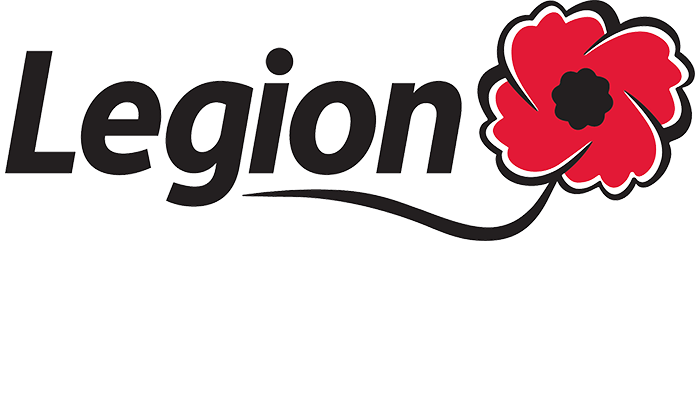
The Royal Canadian Legion
The Royal Canadian Legion is a national organization committed to our Veterans, their families, and the communities they call home. The Legion offers programs and services to a wide variety of groups on both local and national levels that aim to improve the lives of those involved while instilling in them the importance of Remembrance.
At Forum 2013, The Legion made a 5-year commitment to CIMVHR by announcing The Royal Canadian Legion Masters Scholarship in Veteran Health Research. The purpose of this scholarship is to address the unique needs over the life course of those who have served our nation and their families. First awarded in 2014, scholarship recipients receive $30,000 over 2 years.
The Legion’s continuous support for CIMVHR is also demonstrated through their annual sponsorship for CIMVHR’s Military and Veteran Health Research Forum and their representation on CIMVHR’s Technical Advisory Committee.
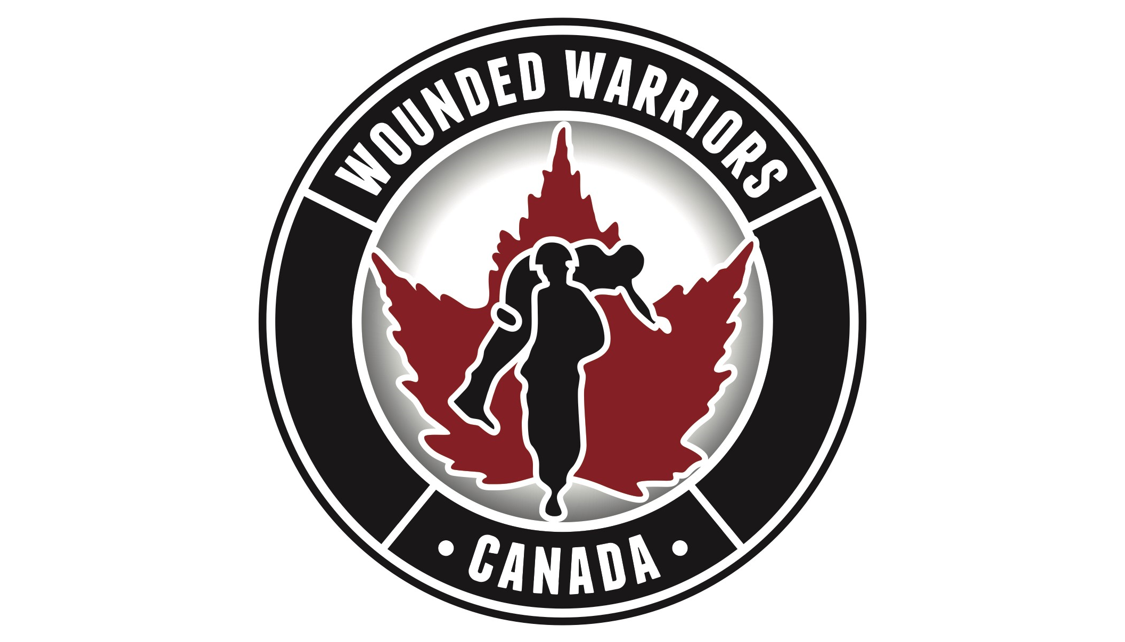
Wounded Warriors Canada
Founded in 2006, Wounded Warriors Canada is a non-profit organization that helps Canadian Forces members – be they full time or reservists – who have been wounded or injured in their service to Canada.
In May 2013, CIMVHR and Wounded Warriors Canada (WWC) made a ten year commitment that will ensure a lasting legacy for military and Veteran health research in Canada by training a future generation of researchers. The Wounded Warriors Doctoral Scholarship in Military and Veteran Health Research is a 2-year scholarship awarded annually to a PhD student who demonstrates excellence in research issues relevant to military members, Veterans and families while also exhibiting significant potential for a high impact research career.
To learn more about WWC’s past scholarship winners visit – cimvhr.ca/scholarships
In addition to their scholarship commitment, WWC has shown support for CIMVHR’s annual Forum and sponsored the inaugural Student and Post-Doctoral Engagement Committee (SPEC) networking event at CIMVHR Forum 2017. This event provided graduate and post-doctoral students who study in the field of military, Veteran and family health research a peer-supported network through their academic journey.
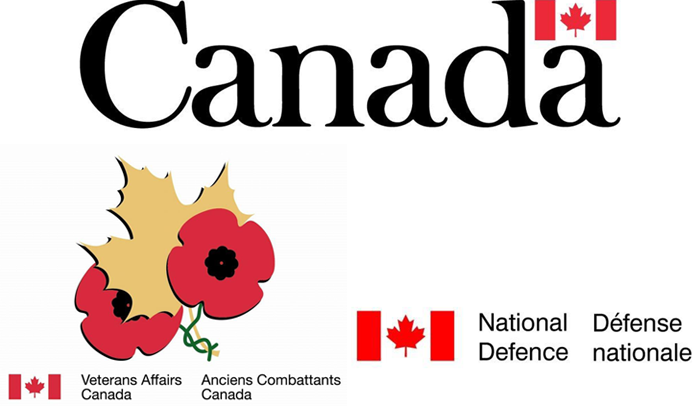
Public Services and Procurement Canada (PSPC)
In 2012, CIMVHR entered into an agreement with Public Services and Procurement Canada (PSPC) to find specialized teams to conduct research that would meet the needs of Defence Research and Development Canada, Canadian Forces Health Services Group, and Veterans Affairs Canada.
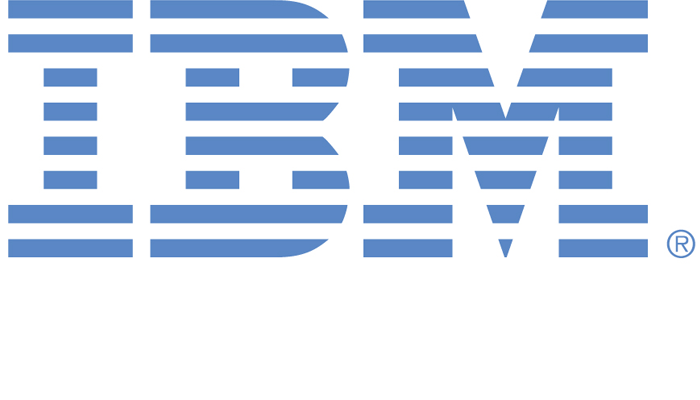
IBM Canada Ltd.
The establishment of the Advanced Analytics Initiative was made possible through the requirement for Babcock International and IBM to meet Industrial and Technological Benefits (ITB) credits for Canadian defence contracts. Through joint efforts with CIMVHR, the Advanced Analytics Initiative has funded leading research focused on improving the health of Canadian military personnel, Veterans and their families. The research supported through this initiative leverages “big data” analytics, machine learning and other approaches to health solutions. In 2021, CIMVHR entered into a Memorandum of Understanding with the Canadian Primary Care Sentinel Surveillance Network (CPCSSN) to support the transfer of the Safe Haven/Safe Research Environment, building research capacity to improve the well-being of Canada’s military, Veterans and their families.

